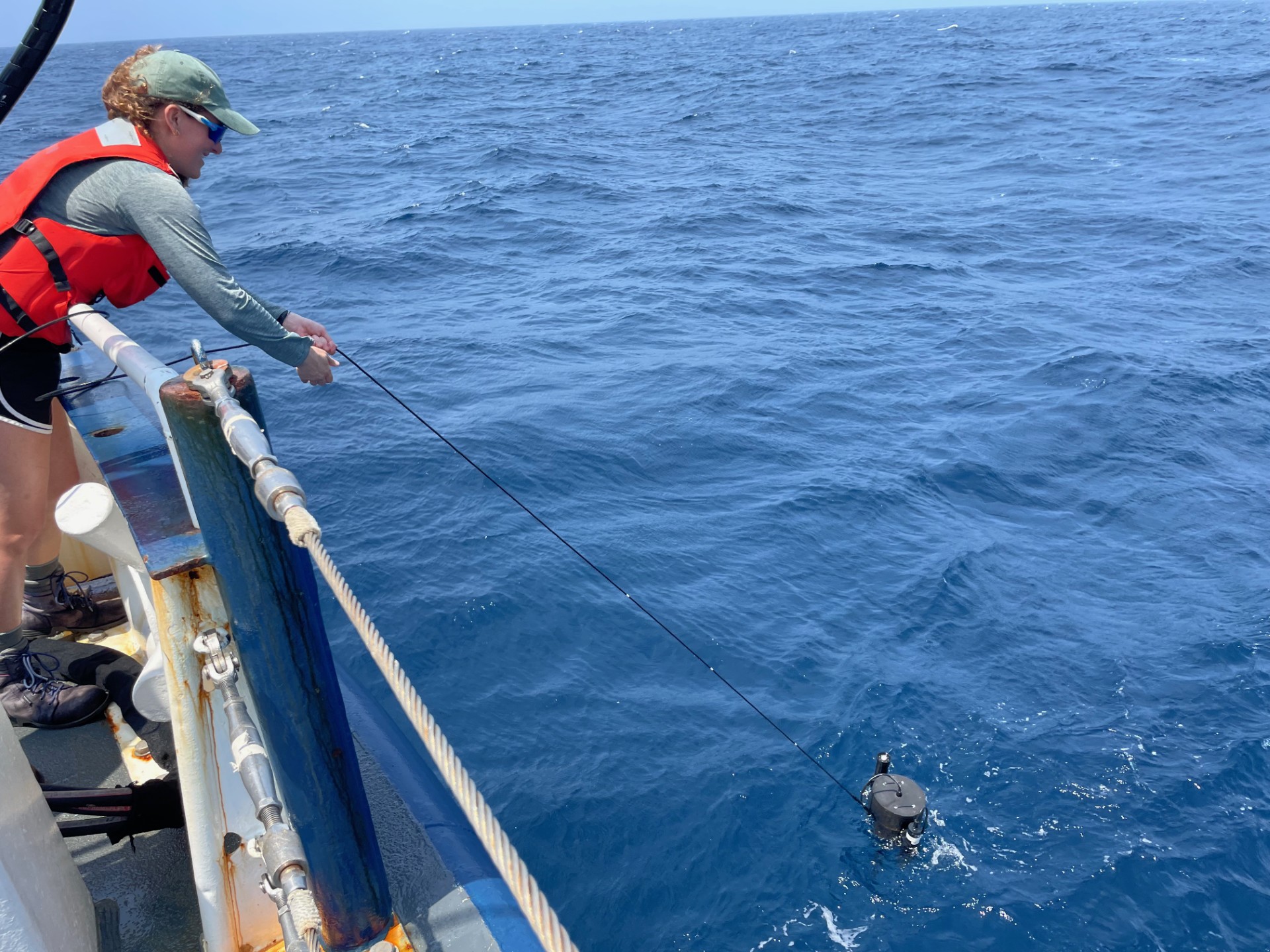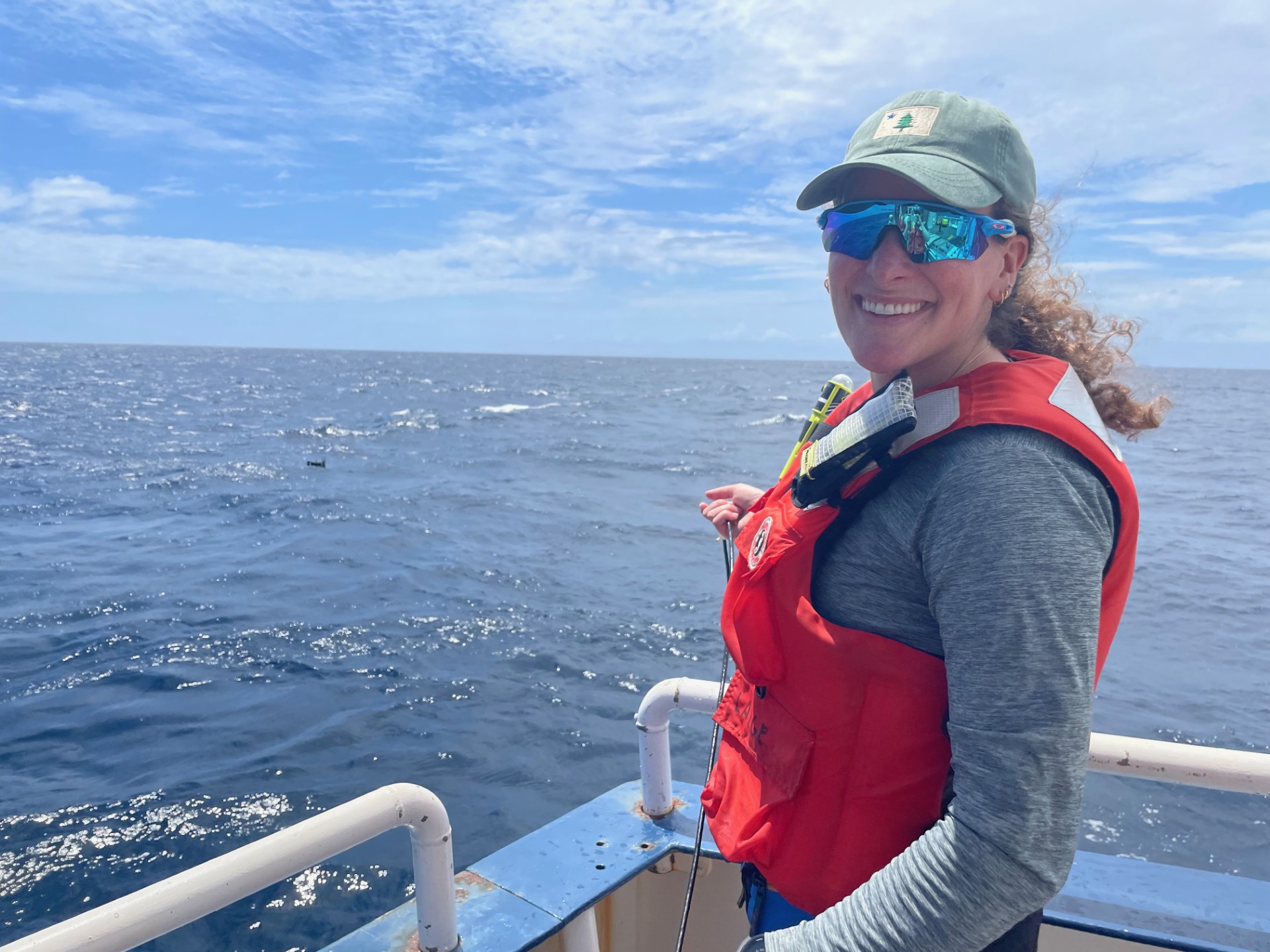Welcoming Assistant Professor Sasha Kramer to BU Earth & Environment!
Assistant Professor Sasha Kramer studies phytoplankton ecology at scales ranging from ocean waters to satellite observations, aiming to understand how these organisms respond to global change. Dr. Kramer’s interest began with a fascination for how these tiny organisms can collectively change ocean color enough to be detected by satellites from space. She started her academic journey as an oceanographer at Bowdoin College in Maine, where she earned a Bachelor of Arts in Earth and Oceanographic Science and Environmental Studies along with an English minor, after which she switched coasts to complete a PhD in Marine Science at UC Santa Barbara.
Dr. Kramer joins us in Earth & Environment from the Monterey Bay Aquarium Research Institute (MBARI) in California, where she was a postdoctoral fellow in the Carbon Flux Ecology Lab. She is currently in the process of establishing her own interdisciplinary lab through building her team and setting up research facilities.
I am so thrilled to have the opportunity to put together a lab group at BU of students, postdocs, and research technicians who can all work on different parts of these questions and bring their unique skills [to the projects].
Dr. Kramer studies global phytoplankton ecology using ocean color remote sensing and in-water methods. Phytoplankton not only form the base of the marine food web, cycle nutrients throughout the ocean, and play an important role in transporting carbon from the atmosphere to the deep sea, but they are also essential for human life and health. Dr. Kramer says, “Phytoplankton connect to so much of the broader Earth system, and the many remaining questions about the abundance, community composition, and distribution of these organisms… keep me enthusiastic and curious.”
Now, Dr. Kramer is actively working with NASA’s first hyperspectral global ocean satellite— the Plankton Aerosol Cloud ocean Ecosystem (PACE) sensor. This past summer, she joined colleagues from MBARI, UMaine, and URI on a research cruise to collect water samples while PACE flew overhead.
Having these in-water measurements to compare to the satellite data is really important for validating existing models, but also for building new relationships between phytoplankton and remote sensing information.
Looking ahead, Dr. Kramer is excited to collaborate with colleagues across BU! Earth & Environment’s interdisciplinary team consists of experts in remote sensing, ecology, social science, and oceanography, which creates opportunities to merge PACE data with deep ocean processes and also utilize various data types to better understand surface ocean phytoplankton ecology within the context of the broader Earth system. Since arriving at BU, Dr. Kramer has also enjoyed meeting new colleagues and learning about BU’s many centers and resources.
Dr. Kramer plans to begin teaching at Boston University in Spring 2026. Her teaching philosophy emphasizes hands-on experiences and helping students gain the confidence to apply the tools they learn in real-world settings.
I’m excited to be developing a new Biological Oceanography class that will be offered in Spring 2026! In other semesters, I will also be teaching remote sensing, so my teaching at BU will combine my two major research interests, which feels like a dream come true.
Outside of her research and teaching, Dr. Kramer enjoys reading, cooking, and baking, as well as being active in nature by running, hiking, biking, and swimming!
Feel free to send me an email or stop by my office any time you want to chat! I would love to connect with anyone who wants to talk about phytoplankton, remote sensing, and the ocean – or how to find opportunities for independent research, applying grad school/postdocs, the best brownie recipe, etc.
You can learn more about Dr. Kramer and her work at www.sashakramer.me/

